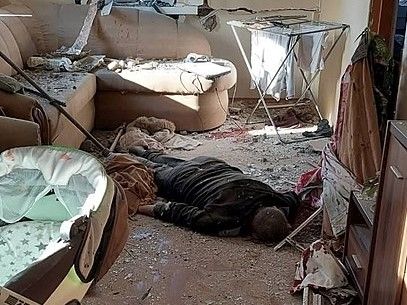During the last couple of days, reports of Russian troops leaving Kyiv and its suburbs have brought hope that the conflict in Ukraine is de-escalating.
This was before images of Bucha were published for everyone to see.
Among a scene of burned-out vehicles, civilians are lying dead in the streets of the newly recaptured suburb. Those who are still there said they were all shot by Russian soldiers.
Danish reaction
Like many other European politicians, the foreign minister, Jeppe Kofod, has reacted to the horror.
He wants the perpetrators to be brought to justice and supports the International Criminal Court’s investigation into war crimes in Ukraine.
Russia, meanwhile, has denied responsibility for the horror – instead blaming Ukraine and NATO for staging the scene themselves for propaganda purposes.
What qualifies as a war crime
As in almost everything else in life, war has rules – the law of armed conflict – which governs how countries behave in times of war.
They are made to protect those who do not take part in the fighting or can no longer fight. That includes civilians like doctors and nurses, wounded troops, and prisoners of war.
So, what makes you a war criminal? ‘Grave breaches’ include willful killing and extensive destruction along with the appropriation of property not justified by military necessity. Deliberately targeting civilians, using disproportionate force, using human shields, and taking hostages are also considered war crimes.
Four ways to justice
There are four paths to investigate and determine war crimes. The first is through the International Criminal Court.
A second option would be for the United Nations to turn the work on its inquiry commission over to a hybrid international war crimes tribunal to prosecute Putin.
A third way is to create a tribunal or court to try Putin by a group of interested or concerned states. These states could be NATO, the European Union and the US. The military tribunals at Nuremberg following World War II, where Nazi leaders were tried, was an example.
Finally, some countries have their own laws for prosecuting war crimes. Germany, for example, is already investigating Putin.















